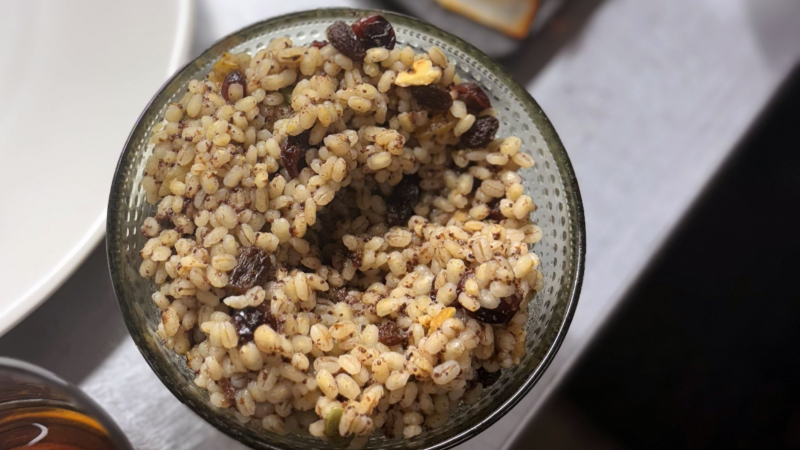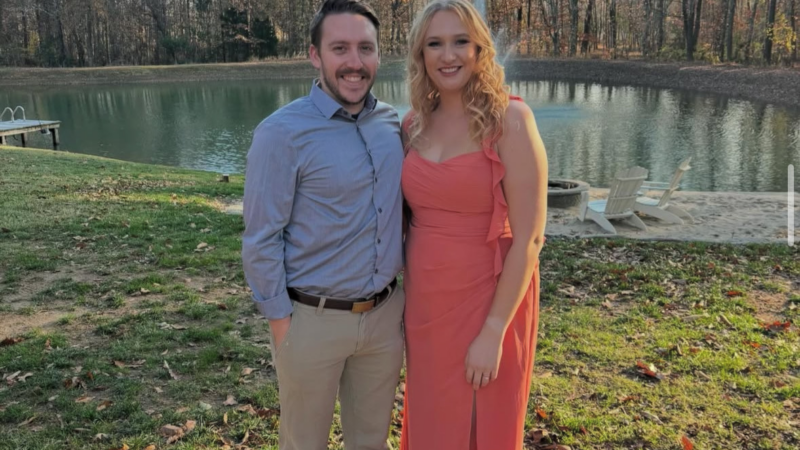Women Leaders
The Black Belt rings Alabama’s southwest corner. Most people who’ve never been to Selma have one image of the place, from one day in history…..Bloody Sunday.
41 years ago, civil rights marchers crossing the Edmund Pettis Bridge, they were met by a sea of policemen, waving clubs and spraying tear gas. Television cameras captured the marchers being brutally beaten.
That was a lifetime ago for this town of 20,000. Today, Selma’s two-term mayor is an African-American. So is the Superintendent of Schools. But racial tension persists and so does poverty. A third of residents are poor and the unemployment rate hovers at nearly twice the national average. 48-year Linda Harrell is one of the lucky ones. She’s a landscape crew chief – brutal work in Alabama’s unrelenting sun – but, she says, at least she has a job.
“We still need jobs b/c we don’t have them here. We just don’t have a whole lot of jobs… a lot of things closing down – plants, stores, stuff like that.”
“I truly believe in my heart of hearts, until we can help the Black Belt rise, Alabama will not rise. It goes back to ‘you’re only as good as your weakest link’.”
That’s why Benga Harrison says her work as director of the Birmingham-based
Leading Edge Institute is so important. The non-profit group sponsors field trips to the Black Belt for female college students. The goal is to immerse young women in state issues like constitutional reform, health care access and education funding. The hope is that they will stay in Alabama after graduation. Research shows that many of the state’s brightest minds leave the state, often because they view the region’s poverty and social problems as intractable. Harrison says another thing young women sometimes see as insurmountable is the good ‘ole boy network.
To counteract that, LEI tries to empower black and white women to speak up about issues important to them – like poverty and education. On this day, the women are playing a game called Star Power. They pull colored chits from a bag. Each is worth varying points in various combinations. The women wander the room, making deals – exchanging their chits in hopes of building up the most points.
“I will trade you a blue for a red… I’ll trade you a blue and a white for a red.”
Eventually, the women figure out that the cards are stacked against them. Players who pull low-value chits at the beginning of the game end up stuck in the lower class, while those that had lucky draws tend to stay in the privileged class. They get massages and special treats, while the less fortunate are relegated to sitting on the floor. That’s the point, says leadership consultant Jeanne Jackson of Birmingham Southern College.
“I think it’s a great game to talk about power… distribution of power.. how systems work … how difficult it is to create change in social structures. How difficult it is to move from the top – once you’re at the top you’re somewhat compassionate, but you’re certainly not going to give up everything.”
University of West Alabama senior Leigh Russell ends the game in the upper class – perhaps, she says, because of the confidence she’s gained from the LEI workshops. She says it hasn’t been easy.
“Sometimes I’m just scared of how I’ll be received or reception of other people and I’m actually graduating the end of this semester so it’s really going to be a nervous time for me getting out there and getting the contacts that I need to make.”
LEI’s director, Benga Harrison says workshop participants have to overcome lots of stereotypes. Some of them have been told they’re too quiet to be leaders. Others, too brash. Harrison says assertive women are often viewed as being too aggressive, especially here in the south.
“I was born and raised in Alabama and I love Alabama and I wouldn’t change it for anything, but I know as a female growing up here we are still somewhat in that position where women are kind of seen but not heard. Still that southern politeness that goes on.”
Alabama has made strides when it comes to female leadership. Six years ago the state was ranked 41st by D-C-based Institute for Women’s Policy Research. By 2004, the state had moved up to 24th. But the Alabama legislature is still only 12% female, with black female lawmakers outnumbering their white counterpart 2-to-1. Again, Benga Harrison.
“There was a female representative in the state legislature. She was talking about how nerve wracking it is to get up and speak within the state legislature and so she started a group of them, when it became two and three, and they would hold hands when they would get up to speak to show strength for each other. And she actually made the comment, she said, you know if there were more women in the Alabama state legislature we wouldn’t have men peeing in a cup!”
Some of the young women who go through the Leading Edge Institute may eventually run for public office. But no matter what these women do, the idea, says Harrison is to keep them doing it in the state of Alabama. Whether they open businesses, head up corporate concerns or eventually occupy the governor’s office, Harrison is convinced they could help lead many in the state out of poverty.
Out with the mayo: How Ukrainians reclaim holiday food
For many people from former Soviet countries, New Year's is a big holiday feast time. A Ukrainian restaurant in Washington gives NPR a taste of what's on the menu.
His brother’s mental illness isolated his family. Now he’s helping other caregivers
When it comes to serious mental illness, family caregivers are crucial partners. But often, they must fend for themselves. A new solution offers them support.
Farmers are about to pay a lot more for health insurance
Tariffs, inflation, and other federal policies have battered U.S. farmers' bottom lines. Now many farmers say the expiration of federal health care subsidies will make their coverage unaffordable.
Why do we make New Year’s resolutions? A brief history of a long tradition
One of the earliest mentions of New Year's resolutions appeared in a Boston newspaper in 1813. But the practice itself can be traced back to the Babylonians.
In one year, Trump pivots fentanyl response from public health to drug war
Experts say Biden's focus on addiction health care saved tens of thousands of lives and slowed fentanyl smuggling. Trump scrapped Biden's approach in favor of military strikes.
A little boy gave her hope for her foster daughter’s future
At a neighborhood park, a young boy noticed Natalie's young foster daughter using a walker. His reaction left Natalie with an unexpected feeling of hope for the future.







